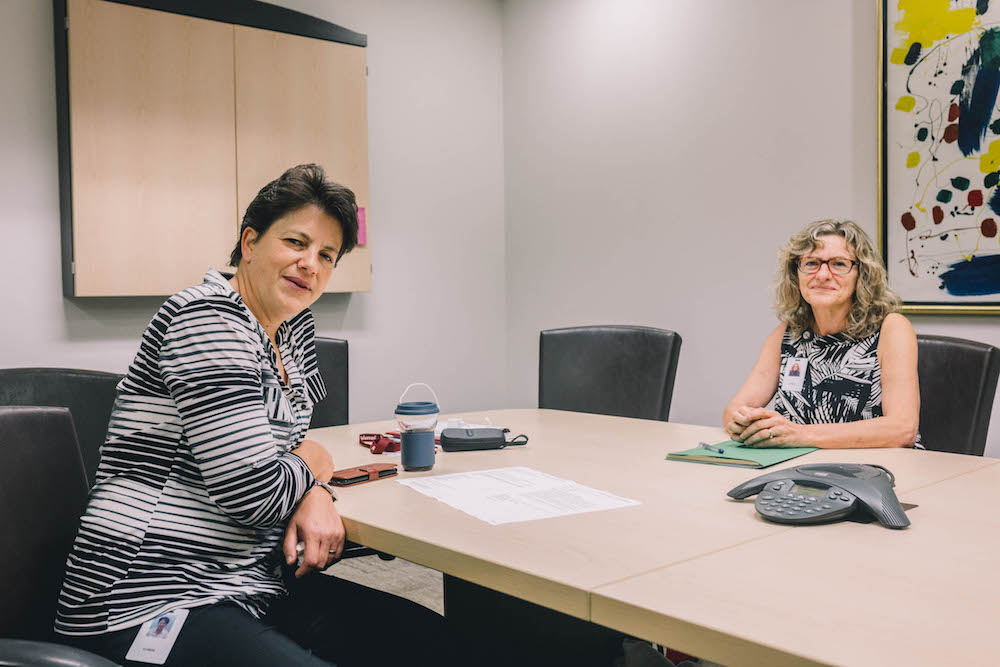Links between stress and mental health unclear to Concordia administration
When asked if the stressful work instability experienced by part-time faculty union members at Concordia could improve, Carolina Willsher, the associate vice-president of human resources, declined to answer.
According to the Concordia University Part-Time Faculty Union (CUPFA) chair of communications, Laurie Milner, job security is the main stressor for members of the union. In an interview with The Concordian, university spokesperson Mary-Jo Barr and Willsher said it was unclear if workload and on-the-job stress can be linked to mental health issues.
“We all bring something to the table. We are the product of our experiences and the baggage that we bring, positive or negative,” Willsher answered.
The same question was asked to the vice-provost of faculty relations, Nadia Hardy, who didn’t directly answer the question. “If the situation of part-time faculty members can be improved with respect to how many contracts they can foresee in the future, it’s a year-to-year calculation,” she responded.
In a May 2014 survey, British newspaper The Guardian asked 2,500 respondents, ranging from PhD students to vice-chancellors in the United Kingdom, if their mental health problems were a direct result of their university job. The survey found that two-thirds of the respondents said their job was the cause of their illness, citing, among other concerns, heavy workloads.
Hardy said the workload for academics is fairly consistent across Canada. “If there’s an issue that comes from workload, this is across the board and not specific to Concordia,” Hardy told The Concordian.
According to Hardy, it’s not possible for members of a specific department to have a different workload than the rest of the university. “Workload is described in the collective agreement we have, so it’s not the chair who decides on the workload in the unit,” Hardy said.
Concordia’s last collective agreement with the Concordia University Faculty Association (CUFA) stated that “teaching load for each member shall be determined in a fair and equitable manner by the dean.”
Hardy explained that the university communicates to its chairs, deans and administrators how to handle a situation when a university employee identifies an issue, “but not to solve [the problem] or enter a discussion about what’s happening.”
“Managers and chairs are not trained […] to be psychologists, but they are trained and informed about how to recognize somebody who may be in distress and then refer them to the resources that they may need to be able to assist them,” Willsher added.
At a faculty of fine arts council steering committee meeting in September, Dean Rebecca Duclos named mental health as one of the issues that needed to be addressed by the faculty as a whole, Milner told The Concordian.
“I’d say that our deans are aware of the situation, letting people know that if there are issues, please come forward and we can help,” Willsher said.
Although recent studies have found that the number of Canadian post-secondary students with mental health issues has increased, statistics concerning professors and faculty have never been published at Concordia.
Willsher said her department receives annual reports detailing the number of people who have accessed the university’s Employee Assistance Program (EAP). The program––an external health service provided by the Canadian company Homeweb––is confidential, meaning the university doesn’t know who among the faculty and staff have accessed the service.
“It’s been fairly consistent in terms of the access” Willsher said, without referring to a specific time frame.
Milner said, although Homeweb is available to CUPFA members, she doesn’t think “that’s quite the same as a psychologist that you’re choosing and you’re meeting with.”
Avenues for university professors
Hardy said faculty members who have mental health issues usually reach out to their chair or dean. Hardy, who acts as a point of contact between the faculties and the university’s human resources department, added that some faculty members may come to her directly.
“Depending on where they work and the relationships that they have built across the university, they may choose to speak to their chair or to their dean or to someone in human resources,” Hardy said. “They also have the possibility to reach the Office of Rights and Responsibilities or to come to the provost office.”
In April, Maclean’s magazine surveyed 17,000 students at almost all the university campuses around Canada. Students were asked to rate the quality of their school’s mental health services. Concordia wasn’t ranked in the top 15 universities and 51.8 per cent of students said they felt overwhelmed on a daily or weekly basis in a separate question.
“We’re constantly benchmarking ourselves against other organizations,” Wilsher said. “I think Concordia is very different today than it was five to 10 years ago because we continue to improve, make sure that we are current and meeting the needs of our population.”
Photo by Kirubel Mehari




